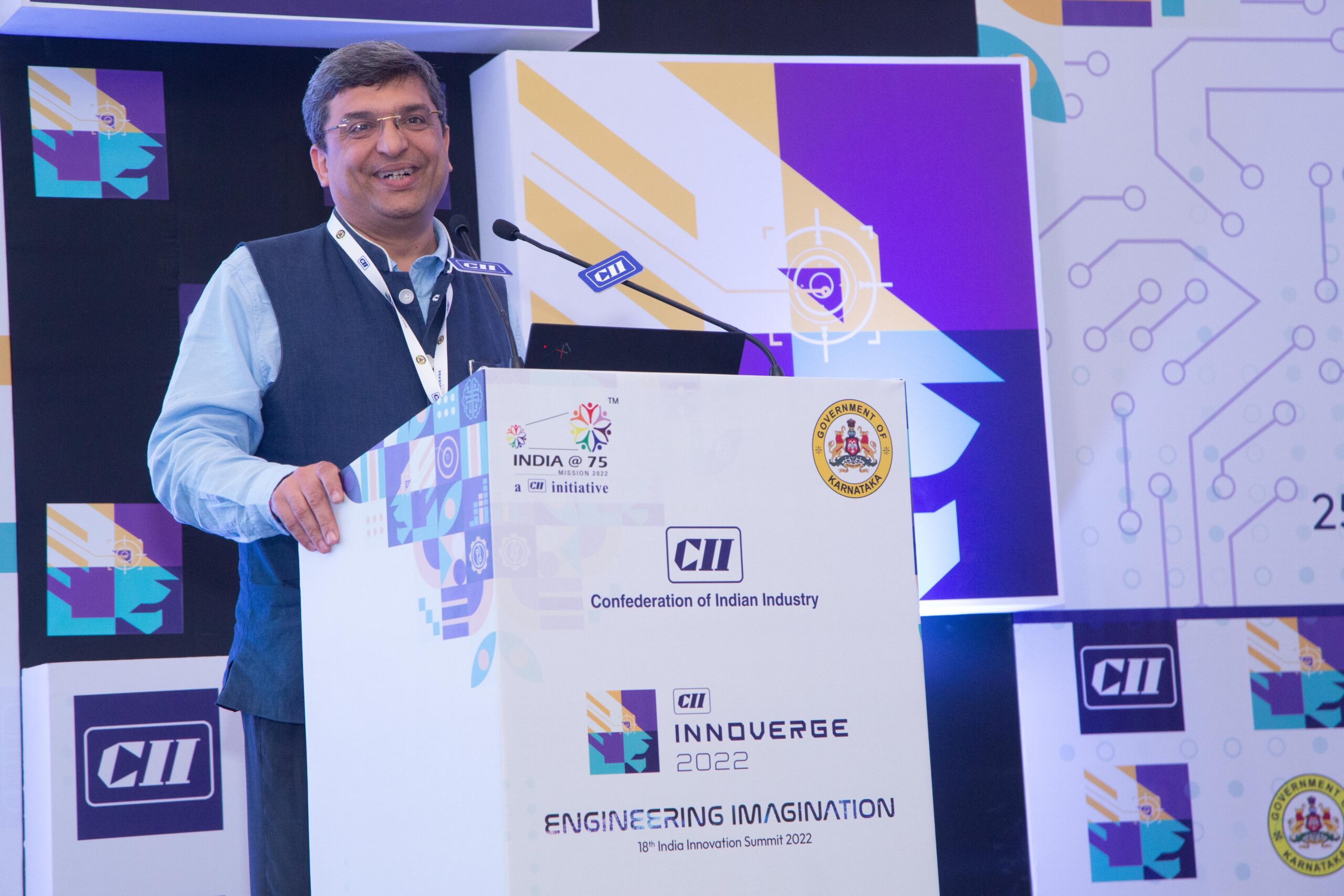Aeris Communications is the global leader in IoT solutions with 30 years of experience optimizing machine-to-machine communications. EV Story’s Aditi Kelkar speaks to President of Aeris Communications India, Dr. Rishi Mohan Bhatnagar, who explains his vision for the future of EV fuelled by the power of safety with Aeris.

What is your vision for EV in India and the world over?
Electric Vehicles (EV) is the future for sustaining the climate by enabling carbon emission reduction. Especially in case of India, with the proliferation of EVs in the three-wheel segment, the wider adoption of e-Rickshaws as preferred mode of transportation for short distances and last mile connectivity, it is also providing employment to the bottom of the pyramid.
The global EV30@30 campaign, which seeks to shift at least 30% of vehicle sales to EVs by 2030, includes India among its member nations. India's EV market propels adoption of green mobility solutions. It has expanded significantly with government support, propelled in large part by the country's 2/3-wheeler automotive sector. Low operating costs, a rise in the demand for first, mid and last-mile connectivity, integrated supply-chain for faster delivery and the goal of carbon neutrality all contribute to widespread adoption. While safeguarding the interests of consumers, insurers, and lenders, the deployment of innovative and disruptive technologies, such as the Internet of Things, will speed up the widespread adoption of EVs.
How do you think you are positively affecting the environment every day?
Aeris has been assisting numerous EV OEMs since 2018 with turning their standard EV into a smart and connected Vehicle! Aeris-powered smart vehicles serve as more than simply a convenience for consumers; they also give OEMs important information about how their products are doing on the road. This helps them bring product related improvements faster and keep ahead in the increasingly competitive market.
Aeris India has helped India achieve its aim of being carbon neutral by building our own electric vehicle ecosystem with linked technology. Aeris has over 100,000 connected vehicles running, which have clocked 120 million miles of eco-friendly driving. This has prevented 9,100 metric tonnes of CO2 from entering the atmosphere. This is equivalent to almost 6 lakh trees. I think the tech sector will revolutionise how services are provided in the future, but this is only conceivable if IoT-driven solutions can be made affordable.
In what ways do you think EVs are changing or transforming city mobility?
EVs are transforming mobility much in the same way that the internal combustion engine (ICE) disrupted steam and horsepower did in the past. Examples include the e-scooters that are taking over city streets; e-bikes and e-Rickshaws have changed the landscape of urban transportation systems. The EV drivers in the short to mid-mile connectivity and delivery space, are getting more financial strength by running their vehicles on cheapest fuel. And now, with battery swapping technology, they are able to run more trips by swapping their batteries two-three times in a day, increasing their earnings substantially.
Here are three ways that I believe, the city mobility will transform because of electric mobility:
* New site typologies for gas stations and parking lots are brought forth by electrification
* Consumers will start to choose their mobility options
* EVs will develop into technological platforms
From a thought leadership perspective, how do you aim to impact the future?
With the accelerated pace of electrification, both incumbent and new OEMs have stepped up and are making huge investments in the EV segment in India which is giving us huge opportunity to serve the market with right sized and priced connected vehicle solutions, which are designed by Indian experts for the Indian consumers. We have successfully created a unique IoT ecosystem to empower organizations in optimizing human intervention and also, attain real-time remote monitoring of machines, equipment, and other assets in addition to predictive and preventive maintenance of numerous products and assets within the enterprises. Today, our technology assists OEMS, Dealers, financers and Insurance companies with vehicle track and track, geofence, driver behaviour, accident history, immobilization in case of theft, battery management system, battery swapping and even detect and notify on potential theft of battery.
Aeris global expertise and deep understanding of Indian consumers helped us to work closely with Indian EV manufactures and create an electric vehicle ecosystem in the country. We now aim to further strengthen this ecosystem by bringing-in more and more stakeholders from not only the EV OEMs fraternity, but also policy makers, infrastructure providers, industrialists, technologist and academicians.
How can sustainability be practiced in our everyday lives?
Individuals can alter their lifestyles in a way that will enable future generations to live sustainably. Here are three basic improvements that you can make to live more sustainably every day:
* Reducing your household energy use is one of the simplest ways to live a more sustainable lifestyle. Using solar panels on rooftops has gone beyond producing energy for self- consumption. Technology is available to share and manage grids for surplus energy among neighbours and build pro-consumer culture.
* To cut waste when it comes to food, is to stop using plastic bags that are wasteful and find different ways to store food. The best reusable containers to use for packing your meals are those made of aluminium.
* Individual carbon footprints can be significantly reduced by altering individuals' driving styles, as sometimes we just need a vehicle to go from Point A to Point B. Aeris supports ride sharing and electric mobility as they substantially contribute to attaining climate-friendly mobility in cities.
According to you, what are the more realistic and easily achievable SDGs (Sustainable Development Goals) with the use of EVs?
India is making steady progress toward achieving the internationally agreed-upon Sustainable Development Goals, and clean mobility is the stepping stone for India to achieve its SDGs.
* EVs can help with SDG Target 7.2 by boosting the proportion of renewable energy and aiding in the fight against air pollution.
* Batteries can be mined for precious metals at the end of their useful lives, promoting resource conservation and sustainable management. Additionally, recycling, and efficient end-of-life management of spent batteries can significantly cut down on waste production. India has launched several measures to encourage EV manufacture and consumer adoption. Therefore, SDGs will serve as a road map by supplying guiding principles for policy.
* India must also commit to mainstreaming EVs across all vehicle sectors, including buses for emission-free public transportation, to fulfil SDG Target 11.2 of providing access to safe, cheap, accessible, and sustainable transportation systems.
Any message you want to convey to those who are still contemplating the switch to EV?
Future is electric and utilizing our cutting edge connected vehicle technology, made in India, made for the world; I encourage OEMs, Enterprises as well as Consumers to go green in the mobility space!
On World EV Day today, what role do you think EVs will play in achieving sustainability?
The Indian government's green measures are commendable to control carbon emissions. They are confronting the problem and addressing environmental concerns with new rules, policies, and frameworks. Therefore, the Indian government has come up with an EV policy to reduce carbon emissions by 37% by 2030. By using electricity rather than fossil fuels to power their transportation, electric vehicles (EVs) aid in the mitigation of climate change. By choosing to drive responsibly, individuals make sustainable decisions.
People can switch to electric vehicles more easily if they have access to charging stations. In turn, expanding the EV charging network promotes environmentally friendly decisions. To cut emissions and reliance on fossil fuels for electricity, charging stations can operate on renewable energy.
 EVStory.in - India's best EV Portal
EVStory.in - India's best EV Portal